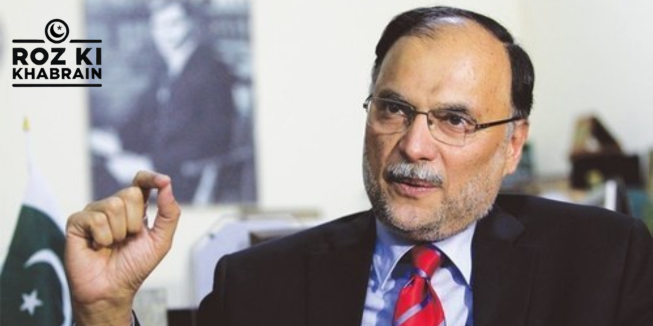Planning Minister Prof. Ahsan Iqbal highlighted the transformative potential of technological innovation while launching the “Science, Technology, and Engineering for Development” initiative, according to a statement issued here. The program was inaugurated during a Round Table Conference attended by scientists, researchers, and policymakers.
Prof. Iqbal emphasized that Pakistan’s future depends on integrating emerging technologies with economic strategies to reshape the nation’s social and economic fabric.
“Our progress lies in establishing a robust foundation in science and technology while aligning it with economic objectives,” he remarked.
Acknowledging the country’s scientific achievements, he called for uniting fragmented efforts under a cohesive framework to drive economic development.
He outlined ambitious targets, including increasing exports from $30 billion to $100 billion within eight years and transforming Pakistan into a $1 trillion economy by 2035. Prof. Iqbal also stressed the need for collective leadership and strategic reforms to break economic dependency cycles and achieve sustainable growth.
The conference featured leading academics, industry leaders, and government officials, fostering dialogue on the role of innovation in national development.
Dr. Najeeb Ullah, Member of Science and Technology at the Planning Commission, outlined gaps in Pakistan’s innovation ecosystem, including commercialization, venture capital, and industry collaboration. He emphasized clustering resources, enhancing civil-military research cooperation, and improving funding mechanisms to stimulate economic growth.
Keynote speakers included:
- Dr. M. Aslam Baig of Quaid-i-Azam University, who urged for policy implementation and greater investment in research.
- Dr. Shoukat Hameed of the Pakistan Academy of Sciences, who discussed leveraging scientific advancements for development.
- Dr. Suhaib Hassan, Member of Private Sector and Industrial Growth at the Planning Ministry, who highlighted the importance of strengthening industry-academia linkages to transition from low-value exports to innovative brands.
- Dr. Taraq Waheed of SZABIST, who pointed to opportunities in digital health and pharmaceuticals, emphasizing the potential for reducing import reliance and achieving universal health coverage.
Dr. Mukhtar Ahmed, Chairman of the Higher Education Commission, underscored the importance of prioritizing education and research for sustainable progress.
The initiative aims to unite stakeholders in building a resilient, technologically advanced Pakistan, paving the way for innovation-driven growth and strategic collaboration.




